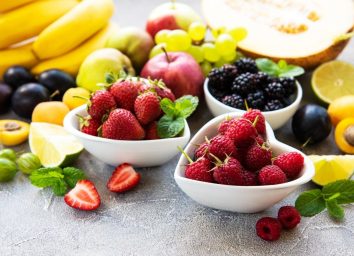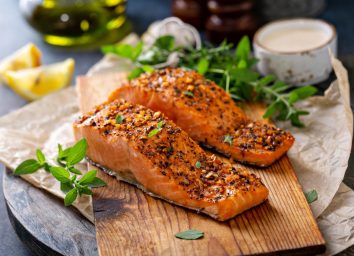4 Best Snacks for Your Heart, Say Dietitians
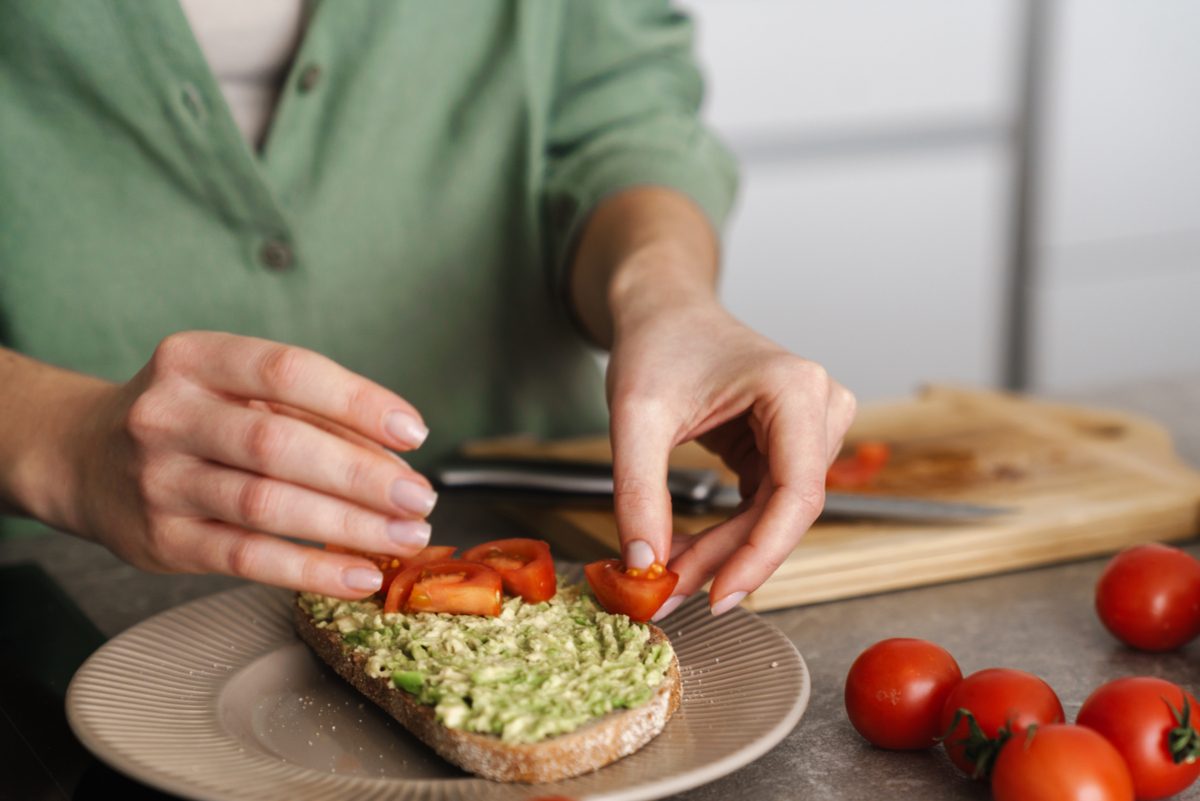
When it comes to heart health, there are a few nutrients known to provide benefit to your cardiovascular system. Omega-3 fats, fiber, antioxidants, and flavonoids are just a few of these nutrients and compounds, and luckily there are a variety of ways to include them in your heart-healthy snacks.
The heart itself isn’t the only thing you need to focus on when caring for your overall cardiovascular health. In order to support your heart health, you must also take care of your blood vessels as they are responsible for delivering oxygen and nutrient-rich blood from the heart to all of your essential organs.
To keep your heart and vessels in prime condition, here are the four best snacks you should be eating. Read on, and for more, don’t miss The #1 Best Protein to Eat for Your Heart, Says Dietitian.
Trail Mix
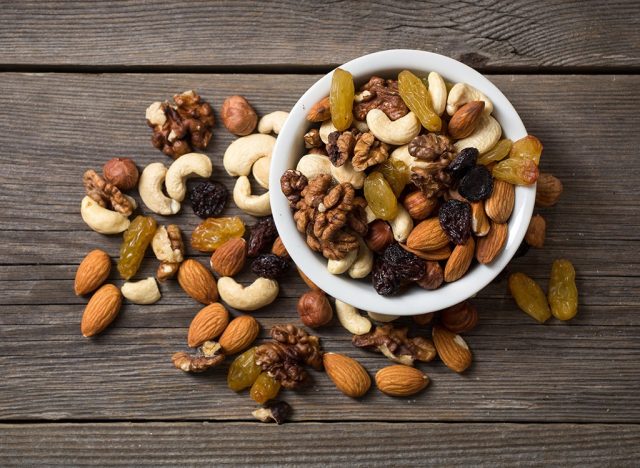
Unsaturated fats, and omega-3 fats, in particular, are some of the most important ingredients when it comes to supporting your cardiovascular system. According to the Centers for Disease Control and Prevention (CDC), heart disease is the leading cause of death in the United States. Cholesterol and triglyceride levels and arterial plaque build-up are risk factors associated with developing heart disease, and research indicates omega-3 fats can positively impact these metrics. In fact, one study found omega-3 supplementation resulted in higher levels of HDL cholesterol (the healthy form), and lower levels of triglycerides.
A daily omega-3 supplement may be beneficial; however, you can also include the omega-3 you consume through your food. Trail mix is a great way to do that, as there are a variety of nuts and seed that contain this heart-healthy fat.
Walnuts are at the top of the list with almonds, hazelnuts, macadamia nuts, and pecans also contributing healthy fats. Add in some hemp seeds for an omega-3 boost, no sugar-added dried fruit for some antioxidants, and even a pinch of dark chocolate chips for flavonoids (more on this nutrient later). A homemade trail mix low in salt and added sugar is an easy, convenient, and customizable snack that supports your heart health.
Tuna and Crackers
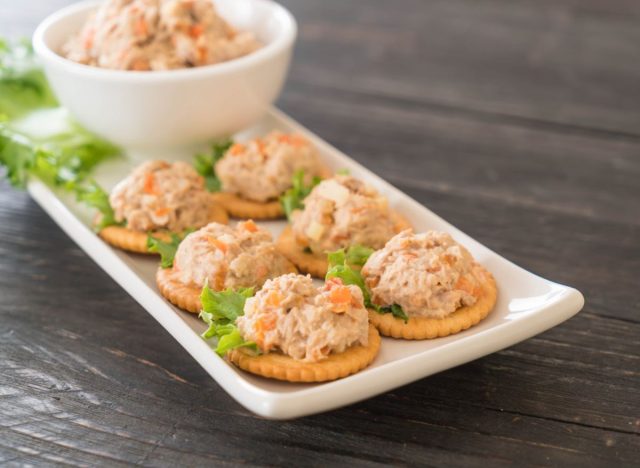
Canned or packaged tuna may be one of our most convenient protein sources on the market. Not only is this food easy for on-the-go snacking and packed with lean protein, but it also contains omega-3 fats. Mix with mashed avocado for a boost of unsaturated fats or even avocado-based mayo for a healthier take on tuna salad. Canned salmon and sardines are also a source of protein-rich omega-3 fats that you can add to crackers for an easy snack.
The crackers you serve as part of this snack can also aid in heart health. Fiber is found in many foods, like fruits, veggies, beans, and whole grain. When choosing heart-healthy crackers, look for options that are whole grain and bonus if they contain omega-3 rich seeds, like chia or flax. One analysis found the individuals who consumed the highest amount of fiber can reduce their incidence of and mortality from cardiovascular disease. This is likely due to the cholesterol-lowering effects of dietary fiber.
Avocado Toast
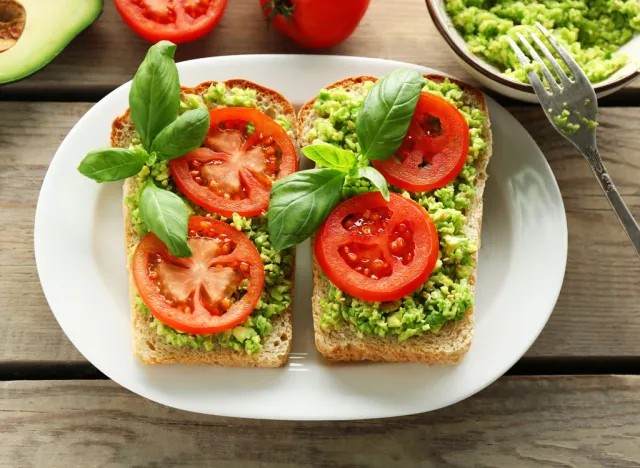
A popular snack, and even meal, is avocado toast. With numerous ways to customize to your own taste preferences, this snack can be packed with nutrients that boost heart health. Avocados contain unsaturated fat, and in one study were found to be associated with a reduction in LDL cholesterol levels (the bad form), which may further reduce heart disease risk. Avocados also contain potassium which is an electrolyte that is also beneficial to heart health and can even help lower blood pressure.
Whole grain toast would be the best accompaniment to your avocado because of its heart-healthy benefits. To further boost the nutrient profile of your avocado toast, add a few slices of tomato on top. Tomatoes are packed with lycopene which has antioxidant properties, and research indicates increasing blood levels of lycopene can have a positive impact on blood lipids and blood pressure. Other foods that are high in lycopene include red bell pepper, grapefruit, watermelon, and papaya.
Berry Smoothie
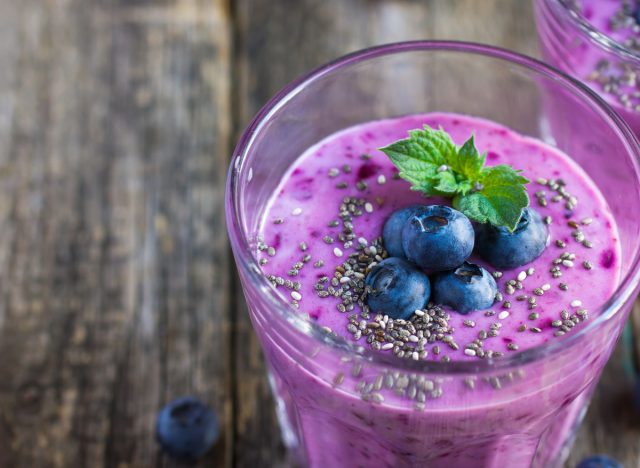
All berries contain a variety of compounds and nutrients that can aid in heart health. Flavonoids are one of these compounds, and research suggests dietary flavonoids, like those founds in berries, citrus, tea, and cocoa can have a positive impact on blood pressure and cardiovascular disease risk. Berries also contain fiber, which can lower cholesterol, and antioxidants that help support cellular health by protecting against inflammation and oxidative stress.
To make your smoothie a balanced snack, add in a healthy fat source and protein. Chia, hemp, and ground flax seeds are great options for an Omega-3 fat source that also provides some protein. Additionally, you can add a spoon of nut or seed butter, plain Greek yogurt, protein powder, or collagen for an extra protein boost. Lastly, a handful of leafy greens, like kale or spinach, will boost your intake of fiber and antioxidants, and add bulk to your smoothie to help increase its satiety factor.

